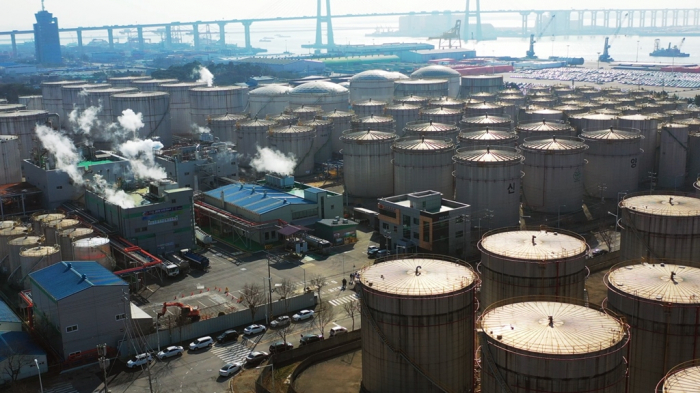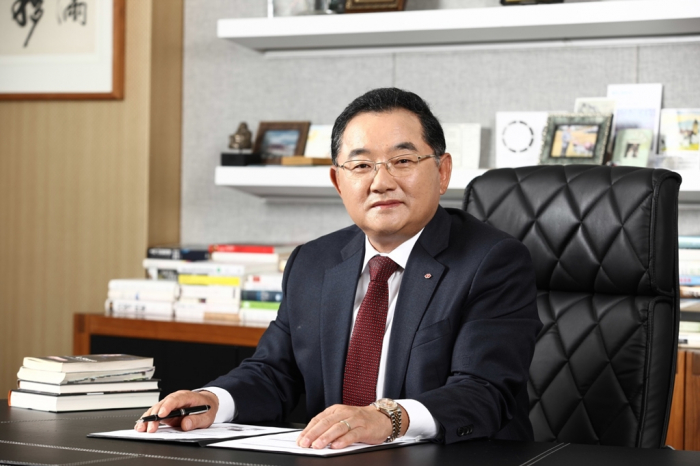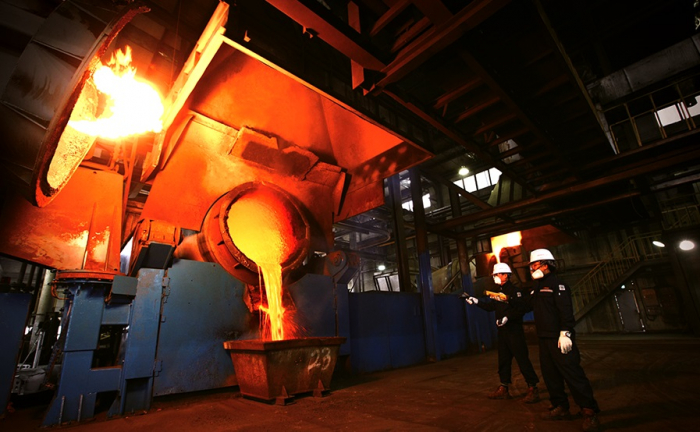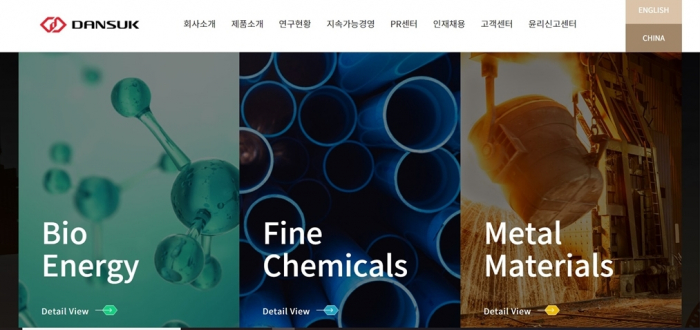Energy
Korean biodiesel firm Dansuk sets sights on battery recycling business
The PVC stabilizer and biodiesel maker plans an IPO in the second half for business expansion
By May 23, 2023 (Gmt+09:00)
3
Min read
Most Read
LG Chem to sell water filter business to Glenwood PE for $692 million


Kyobo Life poised to buy Japan’s SBI Group-owned savings bank


KT&G eyes overseas M&A after rejecting activist fund's offer


StockX in merger talks with Naver’s online reseller Kream


Mirae Asset to be named Korea Post’s core real estate fund operator



KUNSAN, North Jeolla Province – Dansuk Industrial Co., a South Korean fine chemical company, has for decades produced polyvinyl chloride (PVC) stabilizers that protect PVCs from harmful materials.
In line with the global adoption of eco-friendly products by consumers, the company in recent years changed its main product portfolio to biodiesel. And now it is going one step further to enter the waste battery recycling business.
In mid-May, Dansuk broke ground on a lithium-ion battery recycling plant inside the Gunsan National Industrial Complex in North Jeolla Province.
The Dansuk Gunsan Factory 1, on a 2,000 square-meter lot of land, will have an annual waste battery recycling capacity of 8,000 tons. It will also recover 5,000 tons a year of black mass and other battery components.
“Money grows when it is invested,” said Han Seung-uk, chairman and chief executive of Dansuk Industrial, at the ground-breaking ceremony.
The company posted a consolidated operating profit of 73.9 billion won ($56.4 million) on sales of 1.13 trillion won last year.
“Forty years ago, our company’s sales revenue was just 3 billion won. Now we have come this far. As an entrepreneur, you shouldn’t mess around with your money. Spend it wisely for investment,” he said.

STOP AND REVERSE STRATEGY
Dansuk’s origin traces back to Nobel Industry Co., a manganese sulfate maker, founded in 1965 by his late father Han Joo-il. Nobel changed its name to Dansuk Industrial in 1989.
The incumbent chairman, Han Seung-uk, joined the company as a rank-and-file employee in 1983 and ascended to the CEO post in 2012.
Two big fires – one in 2008 and the other in 2016 – were the biggest moments of crisis during his 40 years of management, Chairman Han recalls.
“I wanted to give up everything when the fires broke out. But looking back, the fires served as turning points, leading me to change my business for a better direction,” he said.

During each crisis, Han says he pursued a stop-and-reverse strategy in corporate management.
As he became a vice president in 2004, he set his sights on biodiesel and renewable materials, moving the company’s business focus away from PVC stabilizers, despite objections from other executives.
Currently, biodiesel and renewable materials account for 90% of Dansuk’s total sales, while PVC stabilizers take the rest.
Biodiesel is a form of diesel fuel derived from plants or animals. It is a renewable, biodegradable fuel manufactured from vegetable oils, animal fats, or recycled restaurant grease.
Biodiesel, an eco-friendly fuel, generates 80% less amount of greenhouse gases than fossil fuels.

The European Union has made the use of sustainable aviation fuel (SAF), a type of biodiesel, mandatory starting in 2025. The Korean government is also taking similar moves.
Dansuk collects 140,000 tons a year of waste cooking oil from restaurants and produces 340,000 kiloliters of biodiesel from it annually – the largest amount in Korea. That’s enough to fill up 4.85 million Kia Corp. Carnival vans.
Most of the produced biodiesel is sold to overseas refining companies such as BP and Shell as well as Korea’s four major refining companies. As of last year, Dansuk accounted for 71% of Korea’s biodiesel exports.
The fine chemical company plans to start an initial public offering process in the second half of this year to raise funds for business expansion.
“With the funds raised from the IPO, we’ll strengthen our waste battery recycling business,” said the chairman.
Write to Kyoung-Ju Kang at qurasoha@hankyung.com
In-Soo Nam edited this article.
More to Read
-
 Carbon neutralityHyundai Oilbank, Lotte Confectionery tie up for biodiesel business
Carbon neutralityHyundai Oilbank, Lotte Confectionery tie up for biodiesel businessAug 02, 2022 (Gmt+09:00)
1 Min read -

-
 BatteriesBattery recycling: Carmakers, battery companies in new turf war
BatteriesBattery recycling: Carmakers, battery companies in new turf warAug 16, 2021 (Gmt+09:00)
4 Min read
Comment 0
LOG IN


